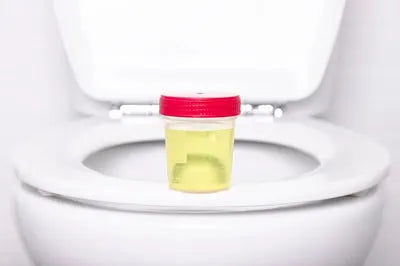Have you ever observed a pinkish color in your urine during one of your bathroom visits? This could indicate the presence of blood in the urine and be a sign of underlying health issues.
The urine of a healthy person ranges from transparent to dark yellow in color based on their hydration level. Pink, red, or brown urine may indicate bleeding, a condition known as hematuria.
It is understandable that this might worry you. That is why we have compiled everything you need to know about noticing blood in urine, including common causes for this occurrence in both men and women as well as possible treatments.
Causes of Blood in the Urine of Males
There are several potential causes of blood in urine when it comes to men. While some of these are harmless, others can be concerning. Understanding the different underlying conditions empowers you with the right information to seek help on time.
Some common reasons include:
Kidney Stones - While kidney stones can be a cause of blood in urine for both genders, being a man increases the risk of experiencing them significantly. Irritation and inflammation due to mild trauma while passing kidney stones can cause bleeding.
Benign Prostate Hyperplasia (BPH)
In simple words, BPH refers to an enlarged prostate. This creates discomfort in the pelvic region and can cause difficulties in passing urine as well as infections, resulting in hematuria.
Prostatitis
This condition refers to irritation and inflammation of the prostate gland, which can lead to infections and obstruction in urine flow, resulting in blood in the urine of males.
Trauma
Trauma to the kidney, bladder, or urethra can cause bleeding, which presents as hematuria. Depending on the extent of the injury, the urine might have a very pinkish hue for a small wound or a deep reddish-brown colour in case of extensive bleeding.
Causes of Blood in the Urine of Females
A woman's body is extremely complex and undergoes multiple changes at different stages of life. It also experiences hormonal fluctuations throughout the month. This makes the presence of blood in the urine of females even more likely. Some common reasons for this are:
Hormonal Changes
Conditions such as pregnancy or menopause can cause rapid hormonal changes in a woman’s body. These sudden shifts in the body may, at times, affect the urinary tract lining, resulting in bleeding.
Urinary Tract Infections (UTIs)
The high prevalence of UTIs in women makes them one of the most common causes of hematuria in females. These infections can irritate and inflame the bladder, causing bleeding. Seeking the right antibiotics from a doctor can help resolve them within a few days. You can learn more about urinary tract infections in this blog post.
Sexually Transmitted Diseases (STDs)
STDs such as chlamydia and gonorrhoea can irritate the bladder and cause blood in the urine.
Sexual Activity
Microtears due to intense sexual activity can also result in blood in the urine. Such injuries are usually very small and heal on their own within a few days.
How to Treat Blood in Urine
Here are some common treatments for blood in the urine that you can try out:
Hydrating Properly
While adequate hydration will not heal any underlying causes, it will speed up the process if hematuria occurs due to a UTI.
Consuming Cranberries
Cranberries are rich in a chemical called proanthocyanidins (PACs), which prevents bacteria from sticking to the bladder’s walls, fighting hematuria caused by infections more quickly.
Drinking Pineapple Juice
Pineapple juice contains an enzyme called bromelin, which has anti-inflammatory properties and can alleviate mild urinary tract irritation, causing blood in urine.
Consulting A Doctor
If you are experiencing other symptoms, such as fever or pain in the pelvic region along with blood in urine, it is advisable to consult a doctor for treatment. Depending on the underlying cause, they may recommend medications such as antibiotics for infections or painkillers for discomfort.
Conclusion
Discovering blood in your urine can be alarming, no doubt. However, it does not always have to be a cause of concern. Try out some of our home treatments as a first step, and make sure to consult a medical practitioner for appropriate guidance.
Product Recommendations
FAQs
1. What does blood in my urine indicate?
Blood in your urine can indicate underlying medical issues such as a Urinary Tract Infection (UTI), kidney stones, or trauma. Consult a doctor to identify the source of the problem and receive treatment.
2. Is the presence of blood in urine an emergency?
Observing blood in urine is not necessarily a medical emergency, depending on the underlying cause. Watch out for additional symptoms, such as pain in the pelvic region or a fever, to determine the severity.
3. Can drinking water stop blood in urine?
Drinking water can help dilute your urine. If you are experiencing hematuria due to an infection, this will also flush out any harmful bacteria and speed up the recovery process. However, do note that drinking water is not a solution since it does not address the underlying cause.
4. Can blood in urine go away on its own?
In some cases, blood in urine can go away on its own after a few hours or days. This usually happens if the hematuria occurs due to trauma or vigorous exercise. However, recurring or persistent blood is a cause of concern and must be treated by a doctor.
5. What home remedy stops blood in urine?
Home remedies such as adequate hydration, eating cranberries, and drinking pineapple juice can help resolve very minor cases of hematuria.





















